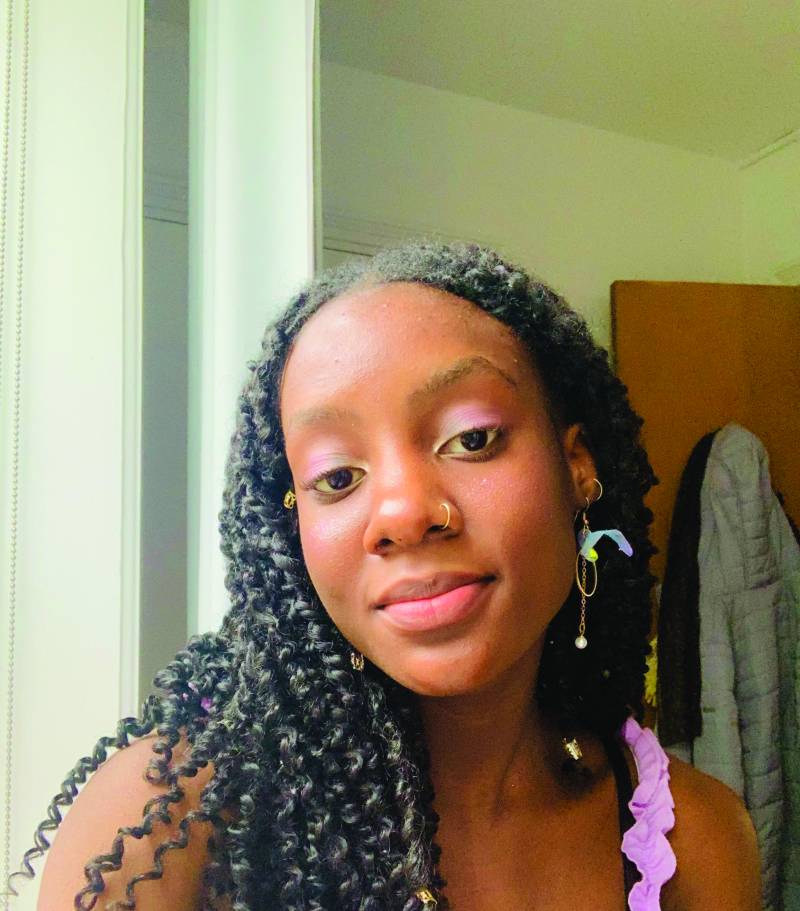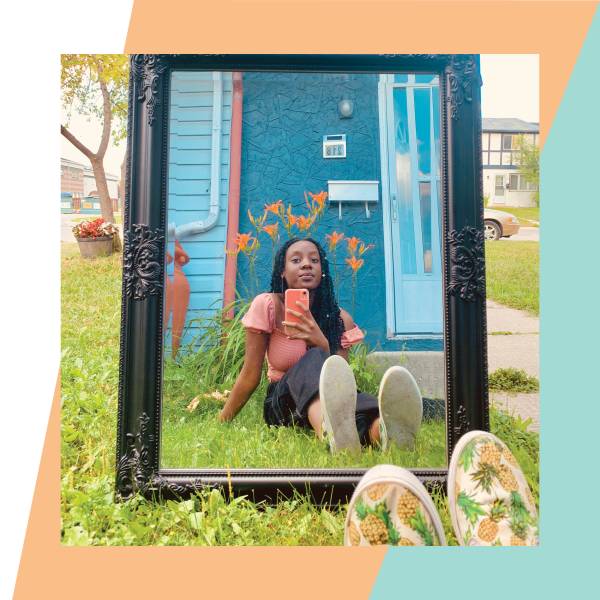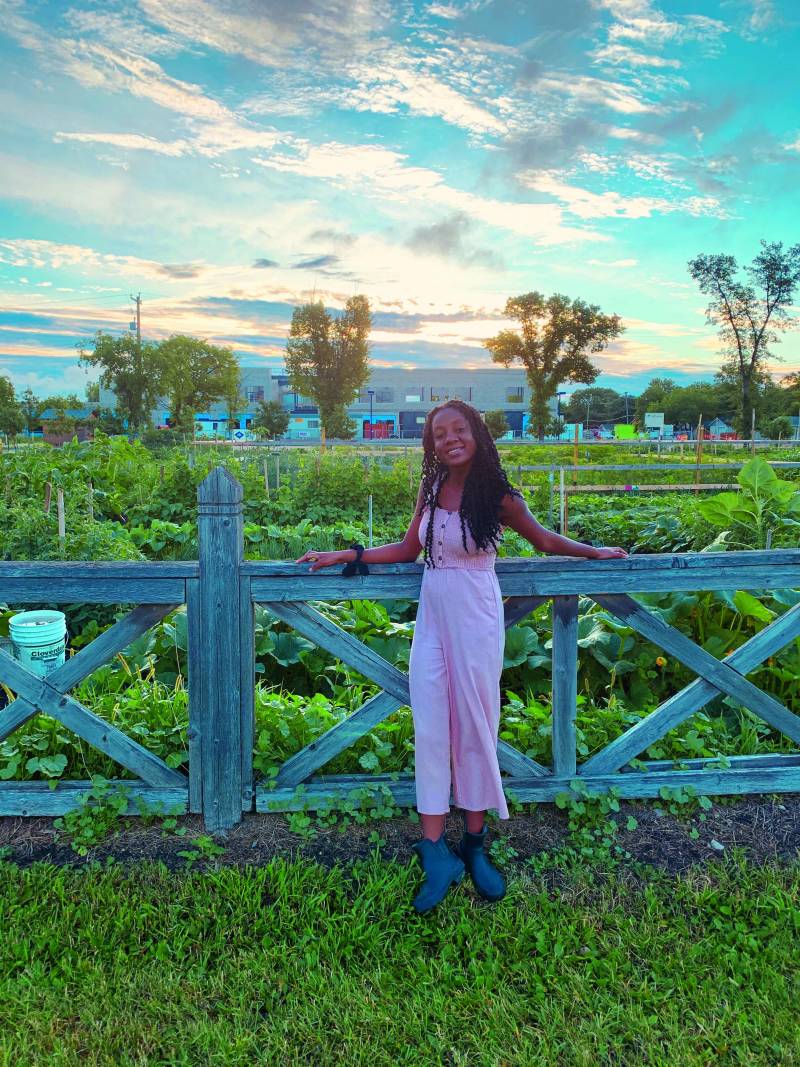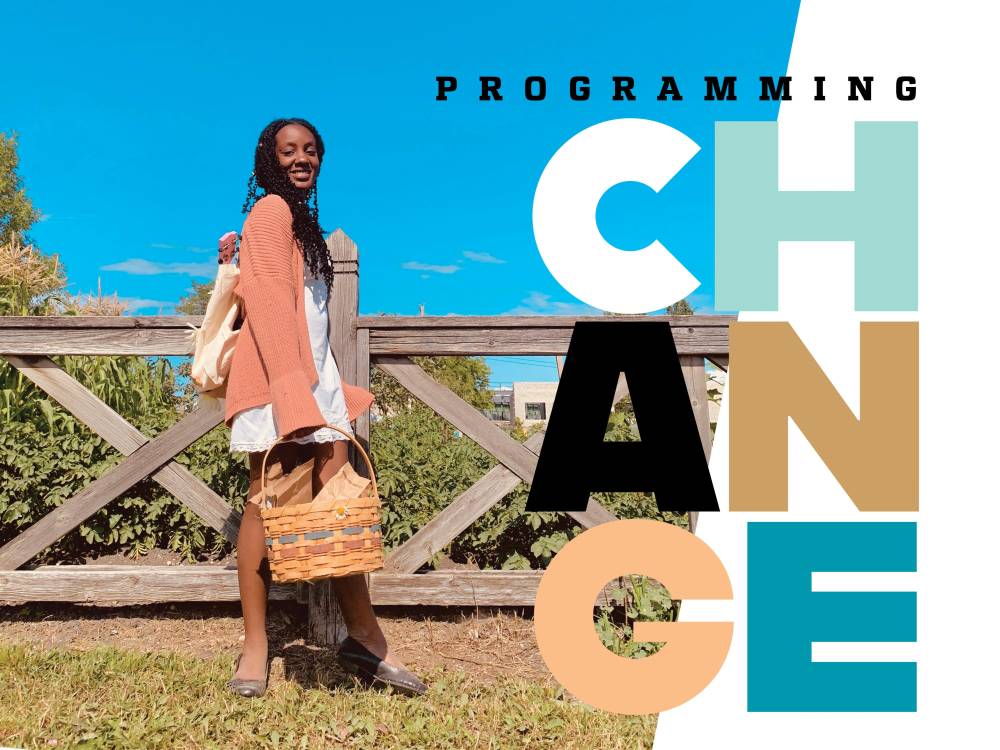SOPHIA ABOLORE CAN PINPOINT the exact moment her interest in computer science was first sparked. Her Grade 7 class was watching a video presentation promoting the Hour of Code, an educational program for demystifying computer coding, when one of the speakers—a Black woman— caught her eye.
“I just really saw a lot of myself in her, and while I didn’t necessarily want to be a programmer just from watching the video, it made it seem more like something I could possibly do and something that would be okay for me to try out,” she recalls.
She started learning basic coding skills and how to build simple computer games. That initial interest was further stoked by her love for writing, poetry, social justice, and activism, and the knowledge that technologies could be used to bring her ideas and imagination to life.

“Computer science is one of the few areas of study where you can really create something out of nothing. I’ve seen a lot of the ways that tech has completely changed the world,” she says.
“My interest in technology is being able to make things that inspire people and help people. That’s something really important to me—creating tech that actually does good for humanity.”
Now a first-year UC computer science student and recipient of a University of Toronto National Scholarship, Abolore is finding new ways of channeling her many passions. Aside from her studies, she works part-time as a junior software developer and is heavily involved in university extracurriculars.
She is fascinated by artificial intelligence and machine learning, especially as they relate to self- driving vehicles and their future integration into our society. As a member of the U of T’s Autonomous Vehicle Team, she is collaboratively working on
a report on how to make self-driving cars more accessible for people with visual or auditory impairments. Some possibilities include Braille labels, audio cues when vehicles turn, and LED-lighted steering wheels.
Everything I do is a way for me to be an activist and stand up for things that I believe in and try to change things that I feel could be better.
“Trying to brainstorm all these things that can make self-driving cars safer for everyone, and not just for the general population, has been the perfect combination of tech and activism for me, because it’s working on things that would help a lot of people who are often overlooked.”
Recently, Abolore has also been working to create Upside, a mental health website for teenagers. Her research for the project has mined the expertise of computer science professors and clinical psychologists with the goal of making the website and app as useful to its intended youth audience as possible.
“Everything I do is a way for me to be an activist and stand up for things that I believe in and try to change things that I feel could be better,” she says.

This summer, she will start a coveted 12-week software engineering internship at Microsoft, where she will work with other bright young minds from across North America.
Abolore’s first year at UC started in the middle of COVID-19, so she hasn’t been able to participate in all of the traditional social student experiences, but she has quickly adapted to her new reality in Toronto. As president of her house, she has been organizing COVID-friendly events to help students feel connected, and in her limited downtime she has been teaching herself how to play the flute and ukulele, writing songs, and practising yoga in her room. She plans to be the first in line to take yoga classes at Hart House once the pandemic is over.
Adapting to change is not unfamiliar to her. Moving to Winnipeg with her family from Nigeria in 2013, Abolore faced a harsh culture shock, but quickly carved out her own spaces where she could thrive and be a leader.

“It was a huge adjustment. The lifestyle shift was very drastic, and just having my parents have to work a lot of hours to sustain our family and watching them work really hard, really inspired me to work as hard as possible,” she says.
In high school, she founded Voices for Change, a youth forum that tackled serious issues like sexual assault, colonization, and reconciliation. She drew the inspiration from a program started by her mother at their mosque, where Muslim youth could talk about issues that were affecting them. The forum was so successful, it eventually expanded to include other schools.
“I remember this girl came to my mom after the session and she told her, she’s never had the space to really speak her mind like that. It inspired me to start something like that at my school, where there weren’t many opportunities for people with differing worldviews and backgrounds and opinions to really talk in a compassionate, but also liberating way.”
Now Abolore wants to inspire other Black youth in turn. As a Black woman, as an immigrant, and as a Muslim, she
still finds herself entering spaces where she is the only person like her in the room, and she is working to change that for future generations. To that end, she is collaborating with other students to start a Black computer science student union and to create more inclusive communities.
“There’s a Society of Black Engineers, which a lot of computer science people do join. But we felt like computer science has its own very unique experiences that should be acknowledged,” she says.
The student union is hoping to launch in time for the fall semester and one of its first goals is to do outreach and run workshops to encourage Black children—and Black girls—to study computer science.
“Without that representation, no one really thinks to do computer science, they don’t see people like them doing it,” Abolore says.
“I would want them to know that they belong there. And they have as much right as everyone else to be there. And they have as much—and maybe in some ways, even more—to offer in terms of their very unique experiences. And to never think for a second that they don’t belong.”
